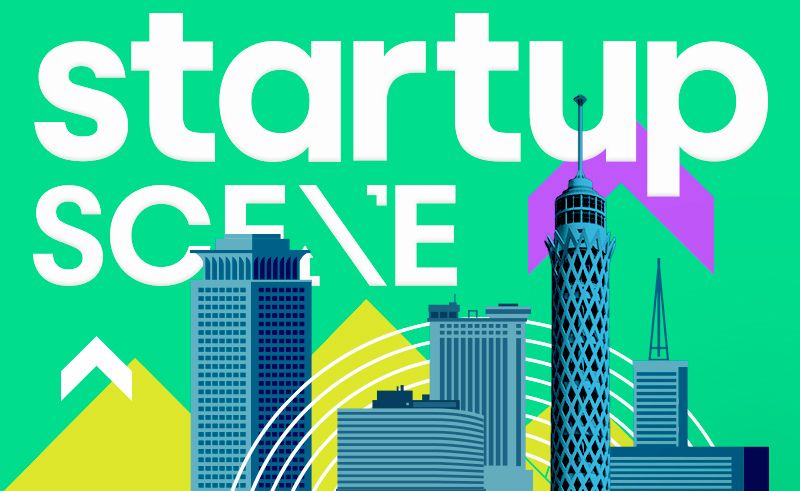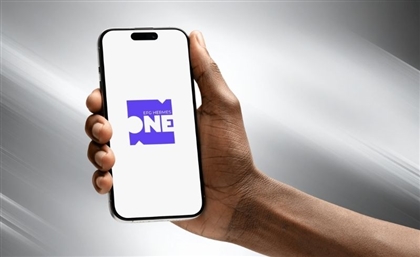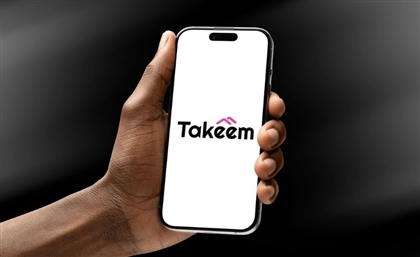A Year in Review for Egyptian Startups
There is no denying that this year was an absolute rollercoaster for the Egyptian startup ecosystem, so here's a look back.

Amidst the global economic slowdown, Egypt has faced numerous challenges in 2022. When it comes to the nation’s startup ecosystem in particular, a global decrease in funding has led many startups to opt for cost-cutting measures, and brace for new ways of operating.
Despite the difficulties, Egypt is still considered a leading startup ecosystem in the MENA region, after Saudi Arabia and the UAE. In the first half of 2022, local startups raised $300 million, marking a 106% increase in funding compared to the same period last year, according to data platform Magnitt.
And while Egypt only raised $42 million in funding in November - down from $113 million in October, according to Wamda - investments are still trickling in, albeit slowly.
But big questions still remain about what the startup landscape will look like in 2023, and whether or not the ecosystem will witness more layoffs, low valuations, and continued funding crunches. Below are some trends that have shaped Egypt’s startup scene in 2022.
DECLINING VALUATIONS
Global VCs have been tightening their belts since the beginning of the year. In Q3 2022, venture funding totaled $81 billion, down by $90 billion (53%) YoY and by $40 billion (33%) QoQ, according to data by Crunchbase.
This funding crunch came after VCs raised significantly large investments in 2021, in some cases double digits, leading to sky-high valuations, as was the case with one high profile startup in Egypt. However, valuations started drastically declining with tighter availability of capital and rising inflation.
While low valuations are characteristic of economic downturns, affecting not only startups, but companies operating in various sectors, they are also a normal part of an economic cycle, which typically happens every seven to ten years.
And if history is a good indicator of the future, VCs are likely waiting to secure equity at low valuations to make massive returns during the next decade. This has happened before during the 2008 crisis, when VCs invested in ride sharing apps such as Uber and Lyft, which later became unicorns.
ONGOING DEVALUATION
The situation in Egypt is more pressing, however, as the country is witnessing ongoing devaluation coupled with rising inflation.
In 2022, the Egyptian pound was devalued twice. On March 22, the pound slid against the US dollar to 18.54 from 15.71, and in October it fell again to 19.61. Today, the currency is officially trading at more than 24 against the dollar, losing more than 50% of its value since March this year. The devaluation is part of the government’s effort to secure another $3 billion loan from the International Monetary Fund (IMF).
Depending on a startup’s business model, a devaluation usually impacts a company’s revenues and profit margins, because people have less purchasing power and are not able to buy as much as they used to. This usually happens if a startup is catering to a local market, as opposed to a regional or global market.
Another effect of devaluation is hiring and retaining experienced talent. With the Egyptian pound losing more than half its value, some employees may opt to work for companies outside of Egypt and earn competitive salaries, sometimes even in foreign currency. This not only makes local startups lose out on good, local talent, but it also forces them to compete with international companies to find qualified caliber.
MORE FINANCING OPTIONS
The solution is having more financing options and more investors for startups, which has been taking place in Egypt throughout the year.
New York-based Modus Capital partnered with USAID to launch a venture builder in Egypt, while 500 Global, a San Francisco-based venture capital fund, is planning on opening a new office in the country, the first in the African continent, to support an estimated 200 startups. That’s in addition to Algebra Ventures, a leading venture capital fund in Egypt, continuing to invest in local startups.
Debt financing is also starting to make headway in Egypt, with fintech startup Blnk recently raising investments through equity and debt financing, and digital freight marketplace Trella also securing investments through debt financing. Instead of selling equity, debt financing enables startups to borrow money from investors, with the agreement that it will be paid back with interest.
This year also saw a lot of M&A activity, with Egyptian Company for Cosmetics (ECC) acquiring a majority stake in online beauty platform Source Beauty; Saudi wholesale marketplace Sary acquiring Egyptian e-commerce platform Mowarrid; and US-based therapy provider Astute Imaging acquiring Egypt-based healthtech startup DilenyTech among others.
LOOKING AHEAD
While startups are getting creative and resourceful with financing options, they still have to be cautious with managing costs and creating profitable revenue streams, preferably sooner rather than.
This year has witnessed notable Egyptian startups such as Swvl and Vezeeta laying off staff after raising two-digit investments less than two years ago.
Meanwhile, social commerce platform Brimore is restructuring to reach profitability after raising significant investments earlier this year. But amidst these challenges, there is a silver lining. The startups that prioritize profitability and sustainable growth, instead of ‘growth at all costs,’ will emerge stronger, and more resilient in years to come.
- Previous Article Riyadh-Based Real Estate Platform AtarCloud Raises $1.3M in Seed Round
- Next Article 10th Edition of RiseUp Summit to Take Place This March






















